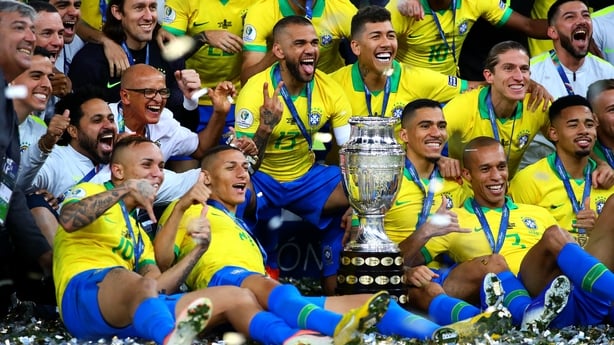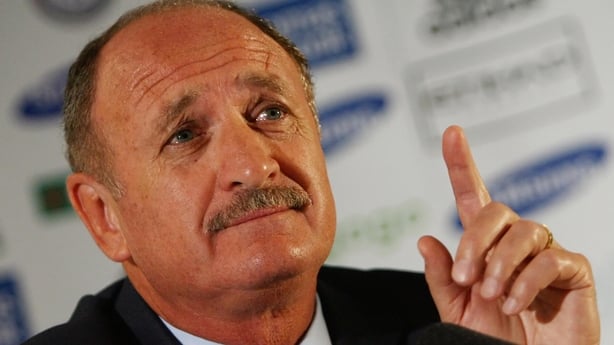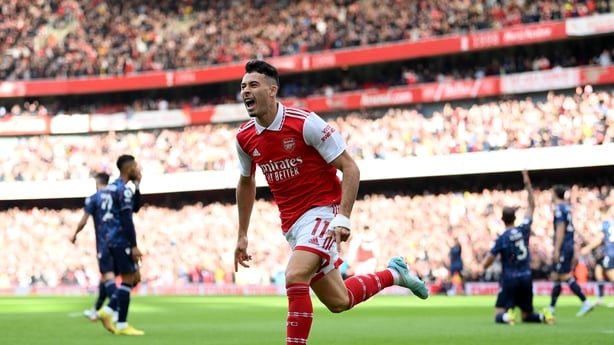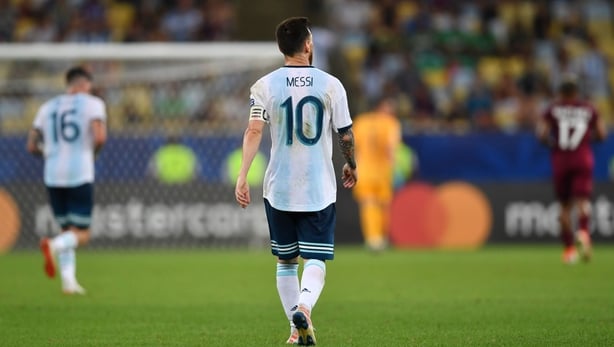It's almost two decades now since it was asserted that poverty and dictatorships were indispensable ingredients in producing great footballers.
Alas, since that maxim was enshrined on the public record, the World Cup has exclusively been the preserve of first-world countries in the European Union (though the Italians have flirted with exiting that category from time to time).
In the past 20 years, the game's grandest prize has been scooped by Italy, Spain, Germany and France, in that order.
Once upon a time, in the 20th century, Jules Rimet zinged back and forth between the two continents, depending on where it happened to be held. The Europeans triumphing on European soil (save for 1958), the South Americans invariably winning when it was held in the Americas.
The lesson of the past two decades was clear, however. The South Americans had been left behind by the Europeans, with their state-of-the-art infrastructure and their armies of clipboard-brandishing coaches.
But is Europe's modern monopoly about to end?
South America's traditional standard bearers arrive at this tournament in rude health - Argentina are threatening a world record - with doubts suddenly cropping up around several of the European bluebloods.
Reigning champions France, who made such an abjectly miserable fist of their last title defence 20 years ago, are hobbled by the absence of both N'golo Kante and Paul Pogba in midfield.
England's form has been decidedly scratchy in 2022, without a win in their last six games, the fanbase and the press have grown weary of the caution of their once beloved manager. One gets the impression that their morale hasn't fully recovered from the Euros letdown and there's a nagging sense in the air that their wave may have crested.
Italy, meanwhile, are somehow not even there for the second World Cup running. Their dramatic 2021 European championship victory, sandwiched in between two abject and shocking qualification failures, will likely be a source of bemusement for future football historians.
The Dutch have recovered from their mid-2010s slump and are participating in their first World Cup since 2014. They've done a full circuit of their managerial roster and Louis Van Gaal is back in charge again, as he was eight years ago. There are, however, questions over the depth of their squad and they flamed out of the Euros at the last-16 stage, losing to Czech Republic.
Spain, after a period of transition and renewal, look an intriguing proposition, with a new generation of attacking talent. They were derided for out-dated purposeless tiki-taka during the Euros, though they proceeded to give the Italians a chasing in the semi-finals, only losing on penalties. Morata, the whipping boy with the media 18 months ago, is still expected to lead the line.
Still, of all the contenders, Brazil and Argentina appear in the healthiest shape. Could things be falling the way of the South American big two?

Speaking on the RTÉ Soccer podcast this week, South American football expert Tim Vickery, reckons they're a considerably more potent beast than in 2018.
"The last (Brazil) squad - four years ago - was one of 23. And there were a few there that you knew had never really been part of the process and were just there to make up the numbers. This time, with 26, it was hard to leave players out. They've got options.
"They've got three formations they can play, just a slight tweak here and a slight tweak there. The man who makes that possible is Lucas Paqueta of West Ham, because he's the one that they move and he can cover four functions if you want it from him.
"They press the opposition more than any Brazilian side has pressed the opposition before. In the last year and a half, they've had an explosion of a new generation of attacking talent to take the pressure off Neymar. Coupled with a group of goalkeepers and centre halves to die for.
"They weren't far away four years ago but they're further down the line and they're better now."
It's 20 years since a Brazilian side, inspired by the three R's - Ronaldo, Rivaldo and then relative wildcard Ronaldinho - swanned their way to a World Cup triumph in cavalier fashion. They were under the management of the authoritarian Luiz Felipe Scolari, who looked like he should have been a commissioner of An Garda Siochana at one point. Scolari, largely unknown in Europe, was widely dismissed as a bone-headed drill sergeant of the type the Brazilians are strangely prone to hiring, usually after the Samba stuff has flopped.

Nonetheless, even he couldn't stifle the creativity of that bunch of Brazilian players. With the European big hitters vacating the stage early - as if all falling prey to the same seasonal virus - the Brazilians sauntered their way to a fifth World Cup triumph. Only England, under the minimalist/ borderline comatose management of Sven Goran Erikson, and the most pedestrian German side ever assembled, stood in their way. While Scolari basked in the glory, his players made clear in the post-final celebrations that Jesus deserved most of the credit. It would take 12 years before Scolari's reputation as a neanderthal no-nothing was fully restored.
The last four World Cups have witnessed a parade of misfortune, largely self-induced. From Roberto Carlos choosing a most inopportune time to tie his shoelaces in 2006, to Dunga's boys' rancorous exit at the hands of a rough-house Dutch outfit in 2010, and above all, the horrifying meltdown on home soil in 2014, it's been one calamity after another.
Since 2006, Brazil have played five knockout World Cup games against non-European opposition, winning all of them, albeit they needed penalties to clamber past Chile. They've played four knockout games against European opposition, losing all of them.
Evidently, their surprise 2018 quarter-final loss to Belgium deemed the most forgivable of them all, their popular manager Tite being retained. He guided Brazil to the Copa America title in 2019, though that isn't a competition that attracts many eyeballs on this side of the Atlantic. To some degree, they are still stepping into the unknown in Qatar, with no recent games against European outfits.
"If you add up the population of all those four countries that have eliminated Brazil, it doesn't equal Brazil," points out Vickery.
"They haven't played European opposition, they haven't been able to play European opposition. So, we don't know. We're going to find out."
To Irish audiences, the Brazil squad wears a considerably less exotic look than in eras past, with a big wedge of their starters now operating in the Premier League, many shipped off to European academies in their late teens.
There's Gabriel Martinelli and Gabriel Jesus at Arsenal, Casemiro, Antony and Fred at Manchester United, Allison and Fabinho of Liverpool, Lucas Paqueta at West Ham and Thiago Silva at Chelsea.
In 2002, 12 of Brazil's 23-man squad was home-based, though the vast bulk of them were left to populate the subs bench, only three appearing in the final. And both Kleberson and Gilberto Silva soon departed for Europe.

In 2022, only three of the squad are domestically based, none of them likely to threaten the starting line-up. As Vickery observes, the Brazilian domestic league is beside the point as far as the national team is concerned.
"There is more money in the big Brazilian clubs, meaning they can assemble better teams and keep them together. Because Europe no longer wants the best players in the Brazilian championship. It wants the best promises.
"The model is 'sell your promises to Europe at 18, 19, 20' and use it to invest in players who are either coming back from Europe at the end of their careers, or they've gone there and it hasn't worked for whatever reason and you bring them back.
"So even though the quality of the sides in the Brazilian league has gone up, it has very little to do with the national team.
"Only three of the squad are domestically based. One is the third goalkeeper (Weverton, of Palmeiras), another is a 33-year-old midfielder (Everton Ribeiro, of Flamengo) who has never played at the elite level - even he doesn't if he can do it - and another is the centre forward Pedro (Flamengo), who is interesting. He's not quick. He had four games for Fiorentina before they gave up on him. But he may well be worth another opportunity at the top level.
"It's a completely different thing now, the domestic Brazilian game from the national team football. And increasingly, Brazilian footballers are developing abroad - Martinelli, Bremer... when Raphinha got into the side, the football public here didn't know who he was. That's becoming increasingly common. The players leave when they're 18, they build their careers abroad."
(Brazil's antiquated 'regional championships, meanwhile, put one in mind of the Ulster football championship: "One of the big problems is that the richest state, Sao Paolo, the clubs there want to keep their State championship. It's the only one that makes sense. It's the only one with the strength in depth that means it's not a complete waste of time.")
Argentina arrive at the tournament, looking a rare picture of emotional health, in the midst of a 35-game unbeaten run. They recently bumped off the European champions 3-0 in the so-called Finalissima at Wembley in June, a kind of international version of the old FIFA Intercontinental Cup.
"If they hadn't been so concerned about getting Messi on the scoresheet, once the game was won, it could have been 7!" observes Vickery.
Their last World Cup campaign in 2018 was a mess. "The players are now reportedly ignoring manager Jorge Sampaoli and making decisions for themselves," was the ominous line from an SB Nation report on their camp. While in France, this has traditionally been the cue for a run to the final, in Argentina it didn't happen, though they did turn in a spirited performance against the French in the anarchic second round game.
Their eventual liberation is reminiscent of England post-2016, the football authorities, in a fit of weary procrastination, simply deciding to install the assistant manager as first team boss in the interim, and then opting to stick with it when they found it worked. Under Lionel Scaloni, they haven't lost a game since the 2019 Copa America.
In Qatar, Messi is still around for another last hurrah, and having bid a tearful farewell to his second home at the Nou Camp for the bags of petro-dollars on offer in Paris, has made clear that Argentina is his definite priority. In the Maradona-Messi debate, the former has always been first in the hearts of his countrymen.

"It's been a remarkable story, Argentina. The last World Cup, they were an absolute shambles, with the oldest squad in the tournament," says Vickery.
"You wondered then, was Messi going to bother anymore? Why is he going to bother, playing with this rubbish?
"What are they going to do about the coach? Well, they sacked him. They brought in (Lionel) Scaloni, for no other reason than he was cheap. He had no previous senior coaching experience. And it's turned out to be fantastic.
"Messi has a lot to do with it. Over the last four years, it's been clear that, for the first time, that the Argentine international side is his priority. He's been different in his behaviour. He's been less withdrawn and much more vocal. He's formed a team around him and he's part of that team."
For years, Messi was lumbered with the Joe Canning quandary - as it's not called in Argentinian football circles - tasked with rescuing a misfiring side from his earliest days. But now, with the great man in the twilight of his career, reinforcements have arrived and Argentina look a more complete side.
Leandro Paredes, Messi's PSG teammate, has been an authoritative presence in midfield, while Angel Di Maria, a forgotten man in this part of the world, has been highly impressive through the current run. One caveat is the absence of Spurs Giovani Lo Celso, with whom Messi had struck up such an effective relationship.
For Vickery though, the chief concern lies with the defence, notwithstanding the recent headline numbers.
"The team on fire are wonderful to watch - their patient, possession game. My big worry for them would be... their defensive stats are excellent, they've conceded two in the last 14 games. Sometimes that's been at full stretch.
"And they're going to be at full-stretch, defending in the knockout stage of the World Cup.
"The reason I would put Brazil ahead of Argentina is that I would much rather have Brazil's defensive unit than Argentina's."
With the odds-makers, the pair are labelled as first and second favourites. For Brazil, so often pegged as favourites by default and by tradition, the feeling is that this tag may be merited this time around, after so many recent failures.
"I see Brazil as justified favourites," says the Rio-based Vickery.
"But there are two causes for concern. One is the emotional balance of the side when things go badly. In the build-up, things have been going too well. You don't win the World Cup in the easy games, you win it in the difficult games. How will they cope with scoreboard pressure?
"And the other is when they come up against teams that are good enough to pass their way and beat the press. That hasn't happened. They've trained for this eventuality. But training is one thing, the game is another."
Follow every game from the 2022 FIFA World Cup via live blogs on RTÉ.ie/sport and the RTÉ News app, or watch live on RTÉ Television and RTÉ Player
Listen to the RTÉ Soccer podcast on Apple Podcasts, Spotify or wherever you get your podcasts.








